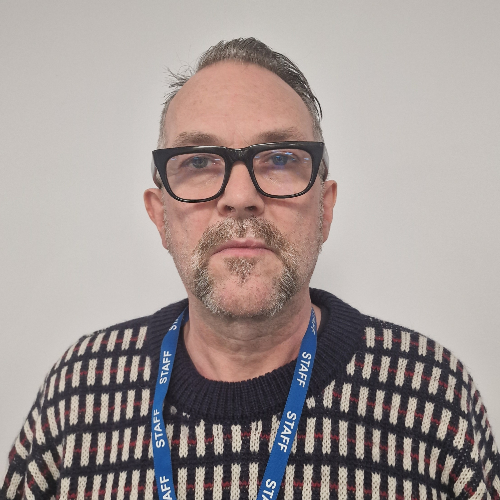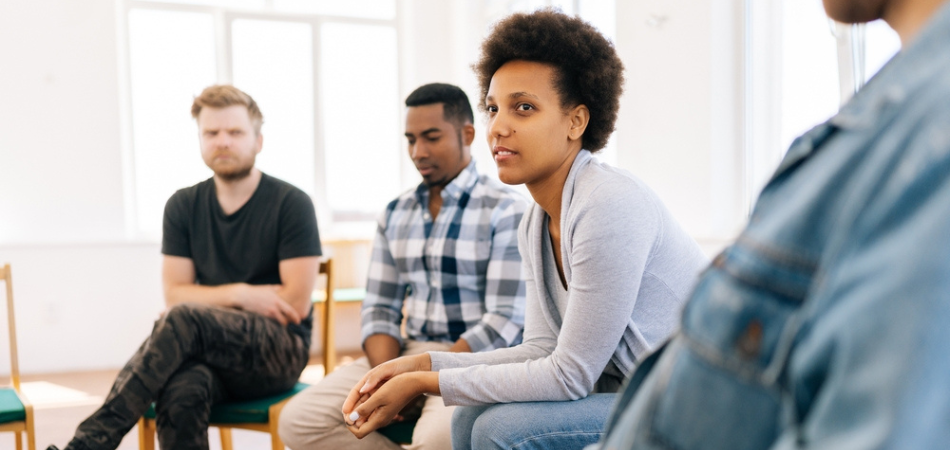
Written by:

Medically Reviewed by:
Last Updated:
March 4th, 2025
Tramadol Addiction Treatment | Detox and Rehab
Think about everything you could do if Tramadol weren’t holding you back. At Linwood House, we are dedicated to helping you realise that vision. Our holistic approach addresses not just Tramadol itself but the underlying issues that led you to Tramadol addiction. We combine detox, rehab therapy and aftercare planning to rebuild your life brick by brick. With your commitment to change and the guidance of our expert recovery teams, we can help you plan a future where you are in control.
Tramadol detox: Purging the past
Taking Tramadol for a long time can trick your body and brain on a chemical level into thinking they need it to function. This is called physical dependency, and it means that if Tramadol is suddenly taken away, you have to re-learn how to work without it. This process, known as Tramadol withdrawal, can be tough, but it is a crucial step for purging your systems.
At Linwood House, our Tramadol detox programme is here to make this process as smooth as possible. When you arrive, we will sit down with you and evaluate your health to understand your unique situation and create a plan that will cater to all your needs. This will likely mean gradually lowering your Tramadol dose rather than stopping suddenly, which is usually the best way of treating opioid addiction. Tapering helps to ease Tramadol withdrawal symptoms and makes the whole experience more comfortable.
Throughout your Tramadol detox, you will have support day and night. We aim to help you get through this first critical step so you can move on to Tramadol rehab therapy with a cleaner bill of health and a clearer mind.
The Tramadol withdrawal process
Tramadol withdrawal symptoms can begin on the very first day of detox. You may experience different symptoms to someone else going through Tramadol withdrawal, but most people experience:
- Anxiety
- Nausea
- Vomiting
- Sweating
- Diarrhoea
- Muscle aches
- Restlessness
- Irritability
- Fatigue
These will probably be mild during the initial two days but will get more intense as time passes.
It is around days three to seven that Tramadol withdrawal symptoms usually reach the heights of intensity. In really severe cases, where you have been using Tramadol for a long time or you have serious health issues, they can escalate into more serious complications like:
Severe/rare symptoms:
- Seizures
- Hallucinations
- Severe agitation
- Panic attacks
When you undergo Tramadol detox at Linwood House, your expert medical team will help prevent these dangerous issues from arising, possibly with withdrawal medicines and psychological support.
During the second week, Tramadol withdrawal symptoms should fade and then disappear altogether for most people. A few may feel some minor symptoms for the days and weeks after that and extra support will be given until all have passed.
Tramadol rehab: Therapy and restoration
Completing Tramadol detox is a major milestone, but the real transformation happens during rehab. This is where you will truly start to rebuild your life as you begin to understand how it has been affected by Tramadol and where the roots of your drug use began. It is a deep, delving process that can uncover a lot about yourself and your past.
At Linwood House, our Tramadol rehab programme is designed to help you explore these roots in a supportive and compassionate environment. We offer a variety of treatment therapies that address the emotional and psychological causes and impacts of Tramadol use.
Our most effective Tramadol rehab therapies include:
Individual therapy
Individual therapy gives you dedicated time with a therapist to explore why you started using Tramadol and how to plan your new life without it. It is a key part of opioid rehab because it is a chance to work through your issues.
Group therapy
Group therapy allows you to share your experiences with others who are also battling their addictions. You will all learn and grow together, and the camaraderie and shared insights will provide valuable support and motivation.
Family therapy
Family therapy helps your loved ones understand your addiction and work together to support your recovery. It’s about encouraging forgiveness and understanding and helping you to rebuild relationships.
Art therapy
Art therapy is a fun and relaxing form of therapy that uses creative activities like drawing or painting to help you express and process your emotions. It is a serene way to explore feelings and thoughts that might be difficult to talk about.
Meditation and mindfulness practices
Meditation and mindfulness practices help you stay present and focused at all times, which can be effective ways of resisting cravings and coping with stress. They can be useful personal wellness techniques at Linwood House and beyond.
Yoga therapy
Yoga therapy combines physical exercise with mindfulness techniques to help you relax and reduce anxiety. It is a holistic practice that supports your mental and physical well-being and can also be a great hobby to continue after you return home.
Tramadol relapse prevention strategies
Completing the Tramadol detox and rehab stages is a serious achievement which you should feel very proud of. But the next step is building your new life of sobriety upon those foundations. Before you leave Linwood House, we will help you prepare for this new life with a solid relapse prevention plan which you can follow post-rehab. It will most likely include some of these tried and tested strategies:
Stick to a routine
Tramadol rehab is very structured, and having a daily routine after you leave can help you stay focused and grounded. Plan your days with healthy activities, including exercise, meals, and relaxation time, which will help keep you busy and reduce the risk of relapse.
Attend aftercare
Linwood House offers aftercare to everyone who has completed Tramadol rehab with us. You will be invited to continue weekly group therapy sessions after you leave which are completely free of charge for the first year.
Join a support group
As well as aftercare, being part of a support group like Narcotics Anonymous can also be a great source of strength and companionship. These groups are found up and down the country and we can help connect you with one close to you.
Identify and avoid triggers
One of the major goals of Tramadol rehab is to help you identify what triggers your cravings. Whether it’s certain people, places or situations, knowing your triggers allows you to avoid or manage them better, which stops them from pushing you back to Tramadol abuse.
Stress management
This could include the meditation and yoga techniques you learned in Tramadol rehab. Better stress management means that you will be able to cope with life’s struggles without needing Tramadol.
Build a strong support network
Surround yourself with supportive friends and family who know the journey you are on and can encourage you to stay strong. Let them know how they can help you stay on track and be there for you when you need support.
Set realistic goals
Setting achievable goals gives you something to strive for and can keep you motivated. These can be personal, professional or health-related goals but having these clear objectives can help you maintain focus on your Tramadol recovery.
Start Tramadol addiction with Linwood House
Taking the first step towards recovery is a brave and life-changing decision. At Linwood House, we understand the challenges you face and are here to support you with compassion and expertise. Don’t wait any longer to take control of your future. Contact us today to learn more about our Tramadol addiction treatment programmes.



